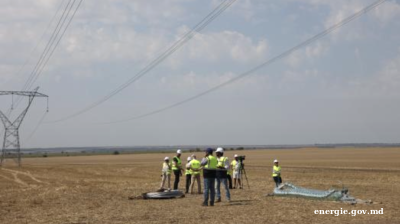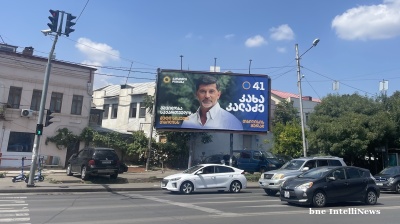Buying a home in South Korea is becoming increasingly impossible for many local residents, especially in the Seoul metropolitan area, as the government continues to tighten financial regulations aimed at cooling the housing market. At the same time, foreign buyers appear to be navigating the system with far fewer restrictions, raising concerns about fairness and prompting growing calls for legislative reform.In May 2025, the government unveiled the third phase of its debt service ratio (DSR) regulations, aimed at addressing a sharp increase in household lending, particularly in the capital region. According to The Chosun Daily, the updated rules, taking effect in July, will expand lending restrictions beyond traditional mortgages to include personal credit lines such as long-term credit card loans and loans secured by deposits.
Under the new framework, a "stress interest rate" will be applied to nearly all types of household lending, effectively reducing borrowing limits even when interest rates are low. For example, a borrower earning $5mn a year, with no other outstanding debt, will see their mortgage limit drop from $30mn to $29mn. The newly imposed 1.5% stress rate represents the most stringent application of the DSR system to date.
These measures are part of the government’s broader strategy to curb speculative investment and stabilise home prices in Seoul. However, these restrictions do not apply to foreign nationals, who remain exempt from DSR, loan-to-value ratio, and other lending controls.
As The Korea Times reports, the impact of this regulatory disparity is already visible. Between July 1 and 18, there were 120 recorded purchases of Seoul properties by foreign buyers—a 14.3% increase from the previous month. The buyers were primarily Chinese, American, and Canadian nationals, with a strong preference for apartments and officetels—compact studio flats that are popular among single-person households. A real estate agent interviewed anonymously said many of these properties are now being resold to other foreign nationals, limiting ownership opportunities for Koreans.
Meanwhile, The Korea Herald revealed that several foreign buyers have misused land transaction permits. A government inspection in late June found three foreign nationals who had acquired properties in land permit zones but failed to use them for their stated purposes. In two cases, the buyers had claimed they would run businesses on the land, while the third case involved a residential permit with no evidence of actual occupancy. The Seoul Metropolitan Government has issued corrective orders and warned of potential fines or criminal charges for noncompliance.
In response to the growing concerns, lawmakers are now pushing for regulatory reform. The Chosun Daily reports that Rep. Kim Eun-hye of the People Power Party plans to propose an amendment to the Act on Report on Real Estate Transactions. The bill would replace the current reporting-based system for foreign property acquisitions with a permit-based process requiring prior government approval.
The proposed amendment also addresses concerns about reciprocity. South Korean citizens often face significant restrictions when purchasing property overseas, particularly in countries like China, where foreigners are barred from buying land and must reside in the country for at least a year before becoming eligible to purchase a home. In contrast, Chinese nationals account for 56.2% of foreign property ownership in South Korea and face minimal local restrictions.
Data from the Ministry of Land, Infrastructure and Transport show that the number of housing units owned by foreigners surpassed 100,000 at the end of 2024, marking a 9.6% year-on-year increase. About a quarter of those units are located in Seoul, and the number of foreign nationals who own multiple homes rose by over 10% during the same period.
Officials have acknowledged the role of foreign investment in driving up home prices. During a city council session in June, Seoul Mayor Oh Se-hoon noted that foreign ownership has contributed to “abnormal” market conditions. The city has since ramped up inspections across all 25 districts, looking into illegal brokerage, funding sources, and land-use compliance.
While these enforcement efforts reflect an attempt to close regulatory loopholes, critics argue that the current housing policy unfairly targets domestic buyers. Locals must contend with a complex web of financial rules that limit their borrowing capacity, while foreign buyers often bypass these constraints by securing financing from abroad.
The contrast between how domestic and foreign buyers are treated reveals a deeper structural issue in South Korea’s housing policy. While the government’s intention to curb speculation and stabilise prices is clear, the uneven enforcement of regulations has unintentionally disadvantaged the very people these measures were meant to protect. Without a more balanced framework—one that ensures both locals and foreign investors are held to the same standards—South Korea risks worsening the affordability crisis and fuelling public resentment. A housing market cannot be considered healthy if it systematically shuts out its own citizens.
Features

World GDP forecasts raised, but US slowdown anticipated - Fitch
Global growth is now forecast to be 2.4% in 2025, up 0.2pp since June but a sizeable slowdown from 2.9% last year and below trend.

Moldova’s dramatic energy sector transformation
Chisinau ended decades of dependence on Russia in just four years — but will the upcoming general election derail the remaining reforms?

Local elections loom in Georgia
Georgia’s October 4 municipal elections are already mired in controversy amid a partial opposition boycott and mounting state repression, as major international observers refuse to participate.

Iran's nuclear materials 'Under rubble of attacks', Foreign Minister claims
Iran's Araghchi says that the only nuclear site currently accessible is the Russian-controlled Bushehr nuclear power plant in his meeting with the IAEA.


